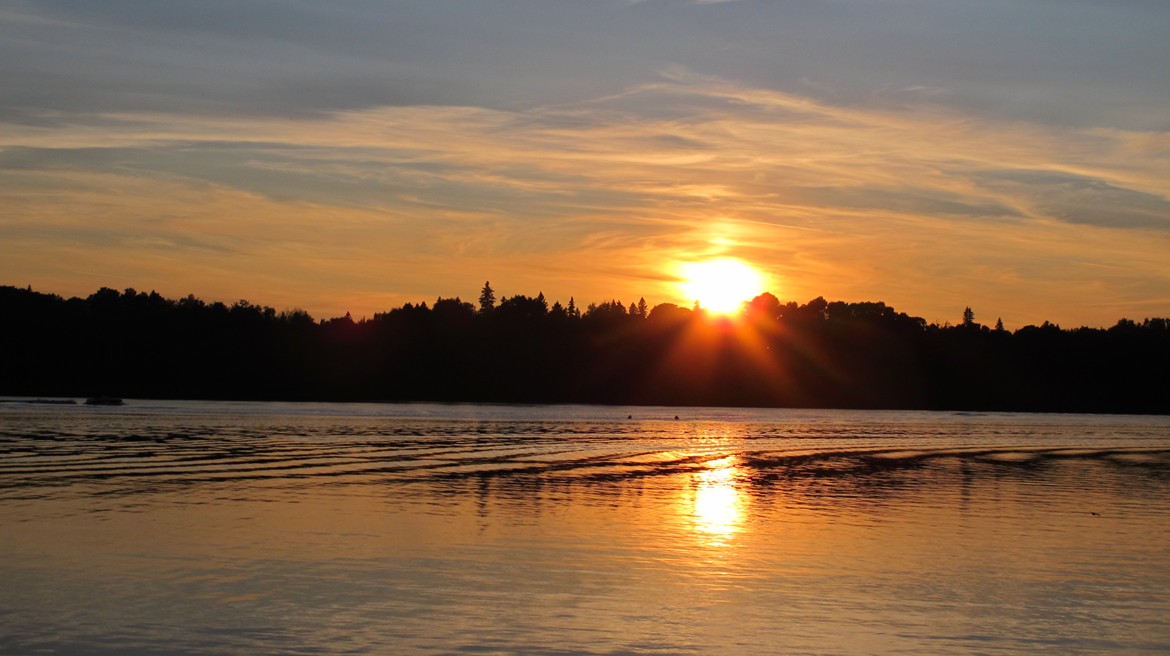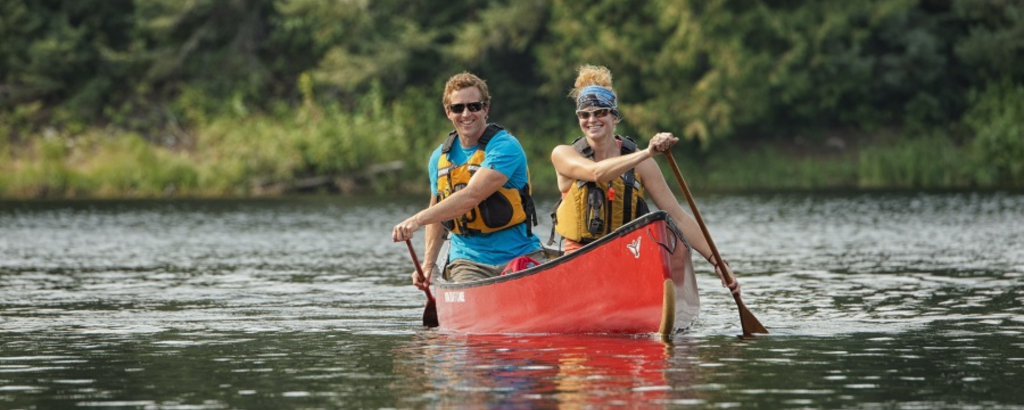
In today’s post, influencer Ken Jones recounts his backcountry trip to Wabakimi Provincial Park.
This past year was interesting to say the least. The global pandemic has changed a lot about how we travel. After having to cancel a trip to Alaska in September, my wife and I wanted to explore somewhere in Ontario where we’d not yet been.
As avid canoe trippers, we decided to plan a wilderness canoe trip to arguably one of the more remote areas of Ontario: Wabakimi Provincial Park.
We had three weeks to plan the trip and, with help from Wabakimi Outfitters, we were able to do just that!
We planned a fly-in, paddle-out canoe trip in the heart of Wabakimi that would take 8 days to complete in late August-early September. This was a trip I’d been dreaming of for more than ten years and I was excited to challenge myself as this would be my most difficult trip to date.
~
The logistics
Before our trip to Wabakimi Provincial Park, we’d mostly frequented Algonquin Provincial Park so we were used to the well-worn portage trails and abundant signage around the park.
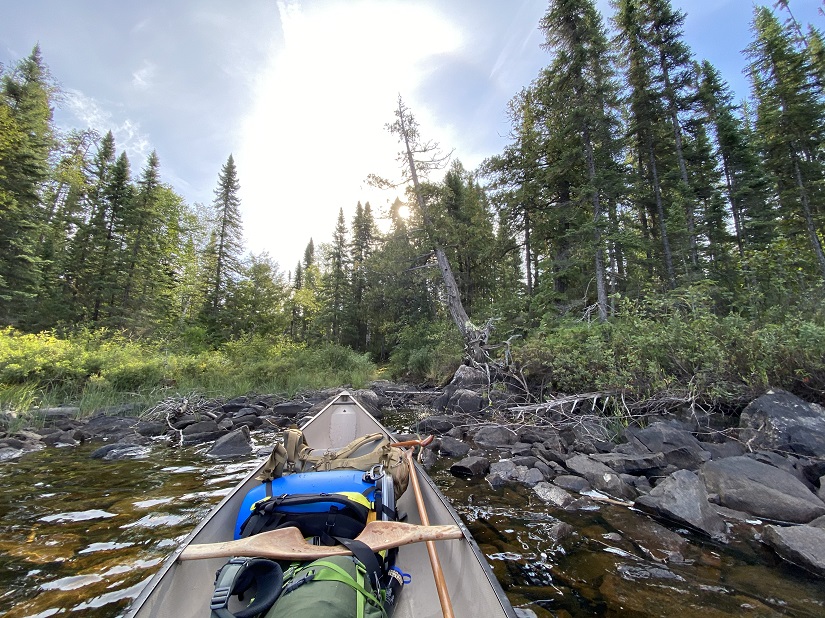
We knew that Wabakimi would be an adjustment. To be sure that we’d be able to navigate the park, we went equipped with two sets of maps and a handheld GPS unit.
The heart of Wabakimi is a wilderness class park, and strives to remain as wild as possible. Campsites are not marked, and there are blazes on most portages rather than the easily recognized yellow portage signs.
Even though there is no park office on site, permits are still required and can be purchased online or through the outfitter.
Our route would take us through a series of lakes and rivers starting in Granite Lake and covering McWade Lake, Lower Wabakimi Lake, Smoothrock Lake, and the Boiling Sands River, ending with a pickup by car at Tamarack Lake.
~
A delayed start
We planned to start our trip just south of Armstrong Station, Ontario. When we arrived, it was very clear that we weren’t going to have the best weather for our eight-day trip.
In an attempt to improve our conditions, we pushed our trip out one day to avoid paddling in the forecasted 30 mm of rain. Luckily, we’d accounted for this type of change, so we had a few extra days at the end of our trip and wouldn’t be rushed on our two-day drive home.
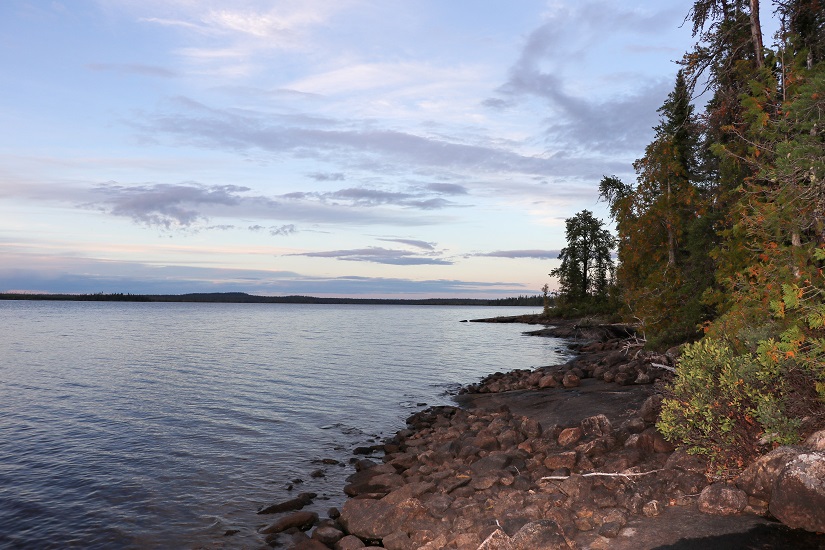
The day after we planned to depart, we awoke to sunshine. We packed our bags, and completed our first portage to the dock where we’d meet our bush plane pilot to start our trip.
~
Alone in the wilderness
After being dropped off in the middle of Granite Lake, we watched as the plane took off. When the plane was out of sight, we realized how remote we were.
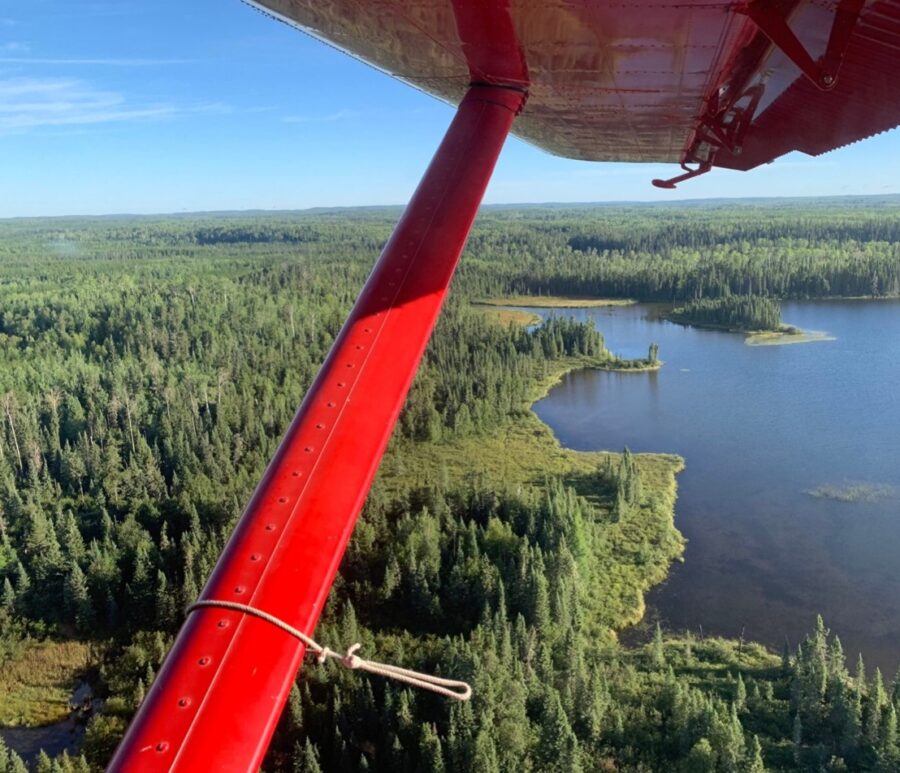
Neither of us had felt this way before in any of the parks in Southern Ontario. We looked forward to the solitude and expected to go the entire trip without seeing another person.
The first day of the trip was beautiful. We were both so happy to finally be immersed in the boreal forest, something neither of us had seen before. Towering Black Spruce trees blanketed the landscape, while dense thick moss carpeted the rocky ground. This type of landscape is what drew us to Wabakimi, as there is nothing like it in Southern Ontario.
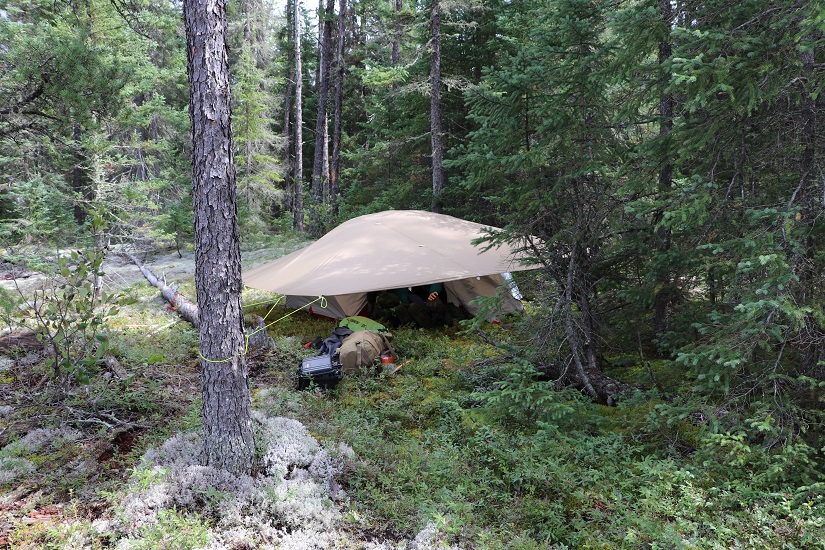
There’s something amazing about the contrast between dense forest and the remnants of past forest fires that had burned through the park. It was a wonderful reminder of the lifecycle of the forest we were in.
~
Maybe not as alone as we thought
That first day of our trip, we were treated to the sight of a large Black Bear across McWade Lake from where we stopped for lunch. It was great to see the bear, but it definitely put into perspective just how wild the park is.
Wabakimi is also home to Woodland Caribou. Many visitors happen upon them, but you must be very quiet to ensure they don’t hear you coming.
~
A change in plans
Over the course of our trip, we ended up having quite a few days where we couldn’t make the distance we’d hoped because of the weather.
Not only did we have days with extreme winds, we also had a significant amount of rainfall. It became very clear that the ability to add rest days to our route and be flexible with our itinerary would be our saving grace.
About halfway through our trip, after a couple of wind-bound and rainy days, we ultimately made the call that we wouldn’t be able to finish the route we’d planned in the time we’d allotted for the trip.
Rather than rush ourselves and risk our safety to make up distance, we decided to have a more relaxed remainder of the trip and truly enjoy the pristine wilderness we were in.
We had a satellite device, so we were able to communicate with our outfitter quite easily and arrange to be flown out on Day Eight from Smoothrock Lake.
Once again, being flexible with changing plans worked to our advantage, even if it did come with an increased cost at the end of the day.
For our remaining days, we stayed at one of the most incredible campsites I have ever seen. It sat at the bottom of a waterfall and looked out into a rocky bay.
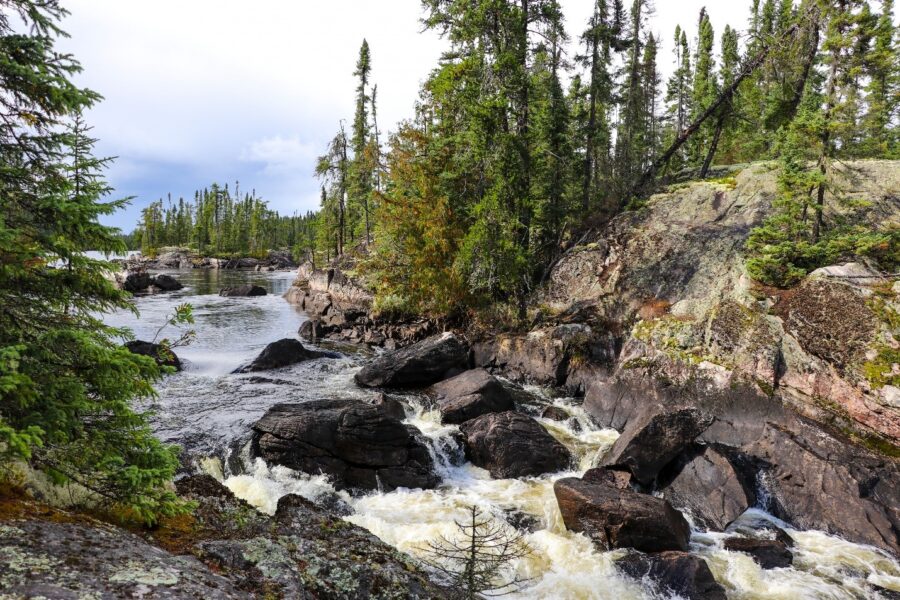
Our position at the bottom of the waterfall made for a prime fishing spot. We spent our days casting from the shore and caught both Northern Pike and Walleye. Sadly, a trophy sized Northern Pike came off of my hook just as I had reeled it to shore.
~
We will be back
On our last day, we heard our bush plane coming in for a landing and made our way to meet it out in the middle of Smoothrock Lake. As the plane took off and flew us out of the park, we got one last look at Wabakimi Provincial Park from the air.
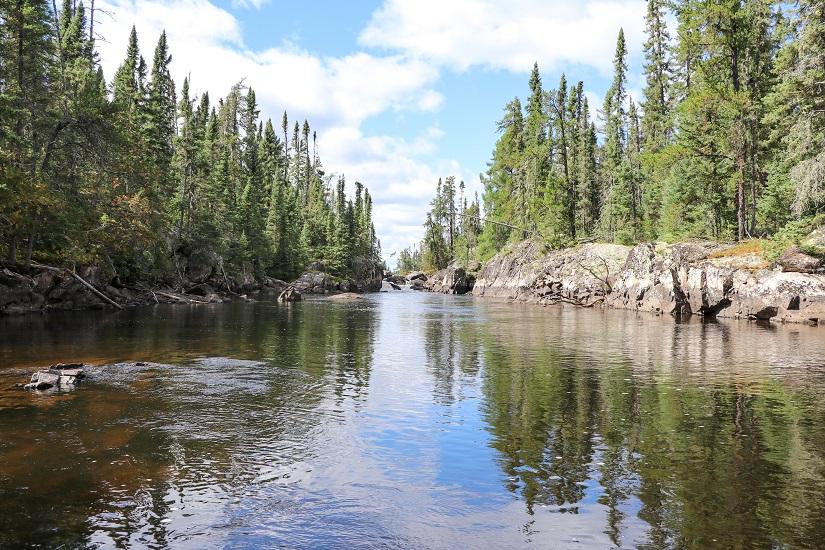
With so much of Wabakimi left to explore, I know I’ll be back again.
If you are thinking about planning a trip to Wabakimi to explore its incredible landscape, know that it is not a beginner-friendly park. Wabakimi is a challenging park that requires strong paddling and navigation skills.
Experience is required to ensure that you have a safe and enjoyable time, but it is definitely worth the effort and preparation.

